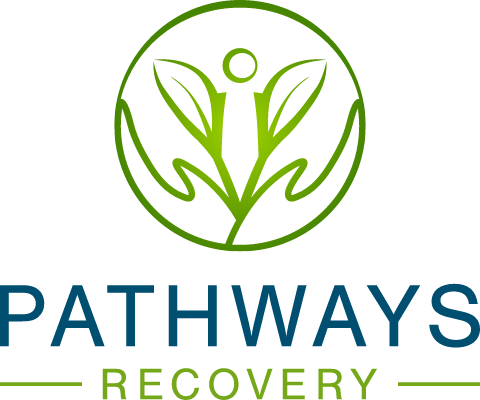Dual-Diagnosis Treatment in Sacramento, CA
A dual diagnosis treatment center is where individuals facing the challenges of addiction and mental health issues can find the support they need. Dual diagnosis refers to the concurrency of a substance use disorder and a mental health disorder.
Our Sacramento dual diagnosis treatment center focuses on addressing the substance abuse problem and the underlying mental health condition. Our dedicated team consists of masters level clinicians with training and experience in substance abuse and mental health disorders including Licensed Marriage and Family Therapist ,Certified Drug and Alcohol Counselors and addiction specialists who collaborate to create personalized treatment plans tailored to each individual.
Our approach revolves around leading an individual through group and individual processes that deepens self awareness of their behaviors and self limiting beliefs while developing new and healthier coping mechanisms so they have the tools to face their painful past and use their new coping tools when they return to their life outside of residential addiction treatment. recognizing and tending to every aspect of a person’s situation—helping them overcome addiction while caring for their mental health. The professionals at our center work together in harmony, pooling their expertise to ensure that individuals receive the highest quality of care throughout their recovery journey.
The treatment process involves a combination of different approaches, catering to various dimensions of recovery.
Our dual diagnosis addiction recovery center aims to equip individuals with the tools and strategies to effectively manage their conditions and prevent relapse by simultaneously addressing both substance abuse and mental health disorders. Our California holistic treatment center acknowledges the intricate relationship between substance abuse and mental health, recognizing the significance of addressing both aspects to achieve lasting and successful recovery.
What is Dual Diagnosis Treatment?
During inpatient addiction treatment, having a dual diagnosis focus can bring many advantages for individuals struggling with both substance abuse and mental health disorders simultaneously. Our Sacramento dual diagnosis treatment center take a thorough and integrated approach to tackle addiction and underlying mental health conditions concurrently. This approach guarantees that individuals receive the right care for all aspects of their well-being, resulting in a more successful and lasting recovery.
Highly skilled professionals specializing in addiction and mental health disorders perform comprehensive assessments at a dual diagnosis treatment center to accurately diagnose and identify co-occurring conditions. This allows them to create personalized treatment plans that cater to each person’s unique needs and difficulties.
Research has demonstrated that treating addiction and mental health disorders simultaneously yields superior treatment outcomes compared to addressing them independently or one after the other. By tackling the underlying causes and understanding the connection between these conditions, individuals are more likely to attain long-lasting recovery and minimize the risk of relapse.
What Are the Benefits of a Dual Diagnosis Treatment Center in Sacramento?
Dual diagnosis treatment is designed to help individuals grasp the intricate connection between their mental health condition and substance abuse. Through therapy and educational sessions, they acquire valuable coping skills, relapse prevention techniques, and strategies to manage both conditions. This newfound knowledge and empowerment enable them to make healthier choices and effectively handle their symptoms.
In our Sacramento dual diagnosis treatment center, a holistic approach is often embraced, considering recovery’s physical, emotional, and social aspects. These centers may incorporate therapeutic methods, such as one-on-one counseling, group therapy, family therapy, medication management, behavioral interventions, and complementary practices like mindfulness or yoga. This comprehensive approach addresses a person’s well-being and promotes overall wellness.
Moreover, individuals undergoing dual diagnosis treatment have the opportunity to connect with others who are navigating similar challenges. Group therapy sessions and support groups create a nurturing and understanding environment where individuals can openly share their experiences, gain valuable insights, and receive encouragement from peers who comprehend their struggles.
We're here to help.

What Does the Dual Diagnosis Therapy Process Entail?
Dual diagnosis therapy is a specialized treatment that addresses co-occurring substance abuse or addiction issues and mental health disorders. Here is an overview of how dual diagnosis therapy typically works:
The process begins with a thorough evaluation by qualified professionals, such as psychiatrists, psychologists, or addiction specialists. They evaluate the individual’s history, symptoms, substance use patterns, and mental health concerns to determine the presence of co-occurring disorders.
A personalized treatment plan is developed based on the assessment findings. This plan considers the individual’s specific needs, strengths, and challenges. It outlines the goals, strategies, and interventions during the therapy process.
Dual diagnosis therapy employs an integrated approach, simultaneously addressing substance abuse and mental health disorders. This approach recognizes the interconnectedness of these conditions and aims to treat them in a coordinated manner.
Medication may be an essential component of the treatment for individuals with co-occurring disorders. Psychiatrists or medical professionals prescribe appropriate medications to manage mental health symptoms, such as antidepressants, anti-anxiety medications, or mood stabilizers. Close monitoring and adjustments are made as needed.
Various forms of psychotherapy are commonly utilized in dual diagnosis therapy. Evidence-based therapies such as CBT, DBT, and motivational interviewing may help address addiction and mental health concerns. These therapies help individuals identify and change negative thought patterns, develop healthy coping strategies, and improve problem-solving skills.
Group therapy sessions allow individuals with co-occurring disorders to connect with others facing similar challenges. Group therapy offers support, encouragement, and a sense of community. It can also provide a platform for sharing experiences, practicing new skills, and learning from others.
As the therapy process nears completion, we focus on aftercare planning. This involves developing a comprehensive discharge plan that may include outpatient therapy, support groups, continued medication management, or other resources to support ongoing recovery.
When you seek treatment at an inpatient rehab center in Roseville, finding a facility that offers personalized care is crucial. Breaking free from addiction and embarking on a recovery path requires a unique and comprehensive approach.
Why Choose Pathways Recovery For Dual Diagnosis in Sacramento
Finding a residential rehab center that creates a stress-free environment solely focused on addiction treatment is essential. You deserve a team of professionals with extensive experience in handling addiction, understanding both the triumphs and the setbacks that may arise. Inpatient rehab provides a valuable opportunity to learn how to cope with stress, manage emotions, and navigate triggers without relying on drugs or alcohol. Look for a rehab center that emphasizes teaching practical coping skills and holds you accountable for your actions, ensuring sobriety becomes a sustainable part of your life.
At Pathways Recovery, our dedication lies in prioritizing addiction treatment and guiding our clients toward recovery. We view each client as unique, not just a mere number, and we develop personalized treatment plans tailored to their specific needs. If you or someone you care about is grappling with addiction, don’t hesitate to reach out to Pathways Recovery and embark on your journey to recovery today.

